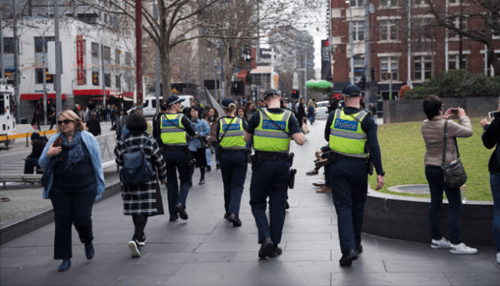Working with Vulnerable People in Australia
Thousands of Australian workers are engaged in work-related roles with direct or indirect contact with vulnerable communities. Below we describe the exact definition of vulnerable persons:
- Child or Children; or
- Individuals that are aged 18 years and above who are or may be unable to take care of themselves, or are unable to protect themselves against harm or exploitation by reason of age, illness, trauma or disability, financial status (e.g. the poor) or any other reason that may render them as per the above definition.
Check of character and suitability for the role in vulnerable sector
Prior to engaging or deploying an individual to an activity for work-related tasks involving direct or indirect access to Vulnerable Persons, a number of Australian industries mandate police character checks in order to determine whether or not a person is deemed suitable for working with the vulnerable.
Further to this, upon conducting a national criminal history check, it may be revealed in some circumstances that a current or potential worker (paid or volunteer worker) has a criminal conviction or disclosable court outcome that is recorded against their name on the NPC (National Police Check) certificate. Laws in Australia require that certain industries (e.g. aged care facilities) must make an assessment of the information provided in the police clearance certificate.
In some industries where the care of vulnerable persons is vital to the core job role (e.g. aged care facilities); approved providers must not deploy, redeploy or engage an individual where the police clearance certificate for that individual contains that they have a serious disclosable court outcome. Examples of this include: Sexual offences, Murder or Assult.
Legislative Framework for workers that have access to vulnerable members of the community
Legislation that governs the protection of vulnerable persons in the community does vary depending on the particular Australian state or territory. Currently, there is currently no overarching national approach that underpins a uniform strategy which must be used by all workers that have direct or indirect access to vulnerable populations.
Risk assessment items for persons with a criminal record who are engaged in vulnerable sector work
The Australian Government’s Department of Social Services (DSS) outlines a number of risk assessment items that should be undertaken by approved workplaces in the care of vulnerable persons (e.g. aged care services) upon discovering that a current or potential employee has a criminal history record on their police check certificate:
- Whether or not the individual’s disclosable court outcome is directly relevant to the role of the person who is likely to perform the activity with the vulnerable persons.
- The length of time that has passed since the individual’s conviction and the individual’s criminal history record since that time;
- Nature of the record pertaining to the Serious, Criminal or Court Record and the circumstances in which the offence actually occurred;
- Whether or not the recorded offence on the criminal history check certificate involved Vulnerable Persons in the community. Please refer to the above description to see the exact definition of vulnerable persons.
- The nature of the activity being performed by the individual and the circumstances in which the individual will or is likely to have contact with Vulnerable Persons in the community or workplace;
- The role the individual is proposed to undertake or is currently undertaking in relation to the activity. Further, whether the fact the Person has a Serious, Criminal or Court Record is going to be likely to impair (directly or indirectly) the individual’s ability to perform or continue to perform the inherent requirements of that role where they have access to vulnerable persons; and
- The suitability of the individual based on merit, experience and references to perform the role that the individual is allocated to or is currently undertaking in relation to the Activity where they have direct or indirect access to vulnerable persons in the workplace.
Given the above items, according to the DSS, a national criminal history check must be undertaken prior to engaging workers with vulnerable persons.
Workplaces in which workers have direct or indirect access to the vulnerable must require this of their staff before deploying them to their respective job roles.
The workplace has an obligation to clarify that a worker is not prohibited under the legislative framework from undertaking job roles with the vulnerable.
Wrapping up
It can be found that although the desire to work with vulnerable people would likely stem for most persons from a place of compassion and service to their community, it is the intention of the Australian government and the families of vulnerable persons to ensure vulnerable persons are getting the best possible care from those that are entrusted to their wellbeing at approved venues. Applying for a national police clearance not only helps validate the role as a caretaker in the legislative framework of Australia but also builds between the worker who is entrusted to their care, and the family members of the vulnerable person.



